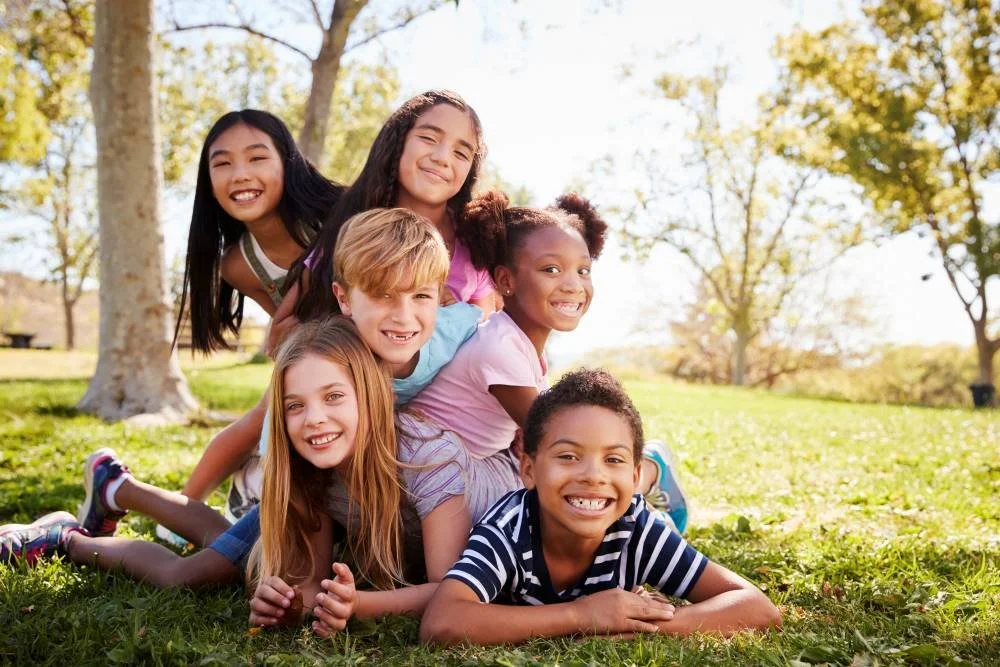Diversity, Equity, and Inclusion at Boys & Girls Aid
At Boys & Girls Aid, we know an equitable workplace and a diverse workforce are essential for effective and responsive programs that empower vulnerable youth.
We seek to challenge systemic and individual forms of discrimination within and beyond our organization so that we fully benefit from the skills, knowledge, and experience of our employees, service users, and community partners.
We recognize the diversity of our staff, board, and partners is a source of strength and knowledge essential to delivering effective service.
We aim to ensure every staff member and client has opportunities to be successful by creating an environment and culture which is inclusive, diverse, supports health and wellbeing, and advances racial and social justice. We are committed to promoting gender equality and being a LGBTQ+- positive and trans-inclusive organization.
Inclusivity Statement
People are at the center of everything we do.
Those we serve come from all walks of life and so do we. Boys & Girls Aid acknowledges and supports the collective sum of our life experiences, knowledge, self-expression, and talents - these are our greatest strengths. Ingrained in our culture are our personal commitment, respect for one another, belief in best intentions, and the way we courageously share perspectives and encourage others to do the same.
We recognize our work is far from over as we continuously learn, grow, and improve.
Definitions of Key Terms
Diversity
Diversity is the range of intersecting differences that exist in the world, a society, or an institution. These factors can include but are not limited to culture, race, ethnicity, religion, age, gender identity, sexual orientation, physical and mental ability, citizenship status, and socioeconomic status.
Equity
Equity is the fair treatment, access, and opportunity for all people, while at the same time recognizing that we don’t all start from the same place. We build equity by understanding the root causes of disparities within our society and acknowledging personal and systemic privilege and oppression.
Inclusion
Inclusion is the act of creating environments in which any individual or group, especially those who have been excluded from the conversation, can be and feel respected, supported, and valued to fully participate as their authentic selves.
Land Acknowledgement
Boys & Girls Aid respectfully acknowledges the land on which we sit and which we occupy rests on traditional village sites. What we now call Portland, OR and Multnomah County were the traditional lands of the Multnomah, Kathlamet, Clackamas, Cowlitz, the Watlala bands of the Chinook, Tualatin Kalapuya, Molalla, and many other Tribes who made their homes along the Columbia River. Today, people from these bands have become part of the Confederated Tribes of Grand Ronde, the Confederated Tribes of Siletz Indians, as well as the Chinook Nation and Cowlitz Nation in Washington State.
We recognize Oregon is a community of many diverse Native peoples who continue to live and work here. We respectfully acknowledge and honor all Indigenous communities, past, present, and future, and are grateful for their ongoing and vibrant presence. We also acknowledge the systemic policies of genocide, relocation, and assimilation that still impact many Indigenous/Native American families. As settlers and guests on these lands, we respect the work of Indigenous leaders and families and pledge to make ongoing efforts to recognize their knowledge, creativity, and resilience.
Resource Recommendations from Staff and our DEI Committee
These are just a few of the books, videos and articles that have educated and inspired us.
Black Lives Matter: Anti-Racism Resources for Social Workers and Therapists
A collection of free anti-racism webinars that are geared toward helping social workers and therapists have these conversations
The Book of Pride: LGBTQ Heroes Who Changed the World by Mason Funk
A Compilation of stories and interviews of leaders and activist on the front lines of LGQBTQ movement from the ‘60’s to the present
Code Switch
A podcast that tackles the subject of race with empathy and humor. Voted Apple’s Podcast of the Year, 2020
How to Be an Antiracist by Ibram X. Kendi
Dr. Ibram X. Kendi asks what an anti-racist society might look like and how we can take an active role in creating it.
RACE MATTERS
A collection of anti-racism webinars focused on confronting racism in the workplace
Why Asian Americans are not the Model Minority
A TedEX presentation on how seemingly positive stereotypes can have a detrimental impact on both Asian Americas and race relations in general.

